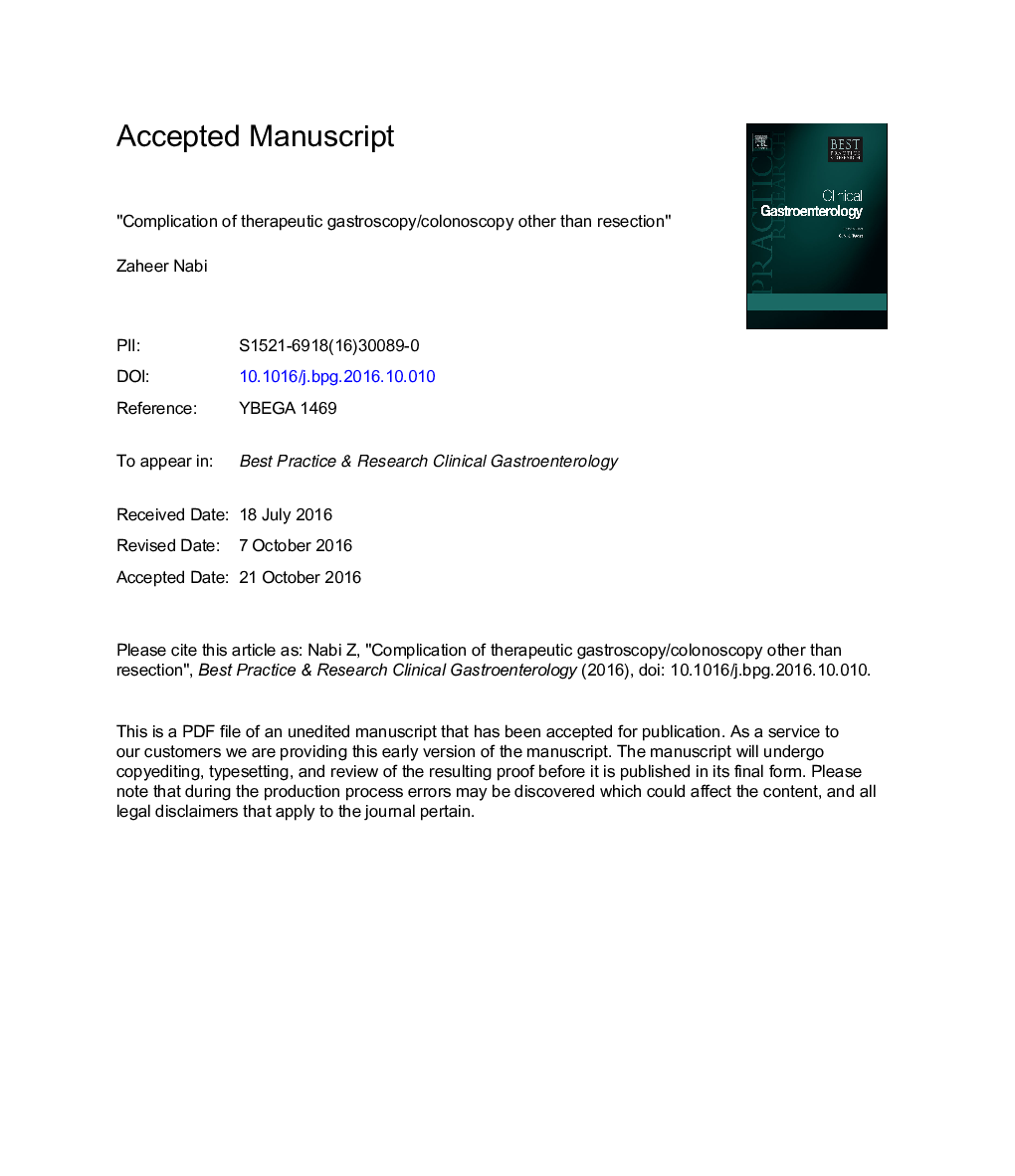| Article ID | Journal | Published Year | Pages | File Type |
|---|---|---|---|---|
| 5654527 | Best Practice & Research Clinical Gastroenterology | 2016 | 45 Pages |
Abstract
Gastrointestinal (GI) endoscopy is profoundly utilized for diagnostic and therapeutic purposes. The therapeutic potential of GI endoscopy has amplified many folds with the evolution of novel techniques as well as equipments. However, with the augmentation of therapeutic endoscopy, the extent, likelihood and severity of adverse events have increased as well. The attendant risks and adverse events with therapeutic endoscopy are many folds that of diagnostic endoscopy. Besides endoscopic resection, therapeutic endoscopy is widely utilized for hemostasis in GI bleeds, dilatation of stenosis, enteral stenting, foreign body removal, ablation of Barrett's esophagus etc. Major adverse events associated with interventional endoscopic procedures include bleeding and perforation. Adverse events of endoscopic interventions are diverse and related to the underlying disease, therapeutic modality used and operator's experience. Many of these adverse events can be prevented. Early recognition of an unavoidable adverse event is important to minimize the associated morbidity and mortality.
Related Topics
Health Sciences
Medicine and Dentistry
Endocrinology, Diabetes and Metabolism
Authors
Zaheer (Consultant Gastroenterologist),
